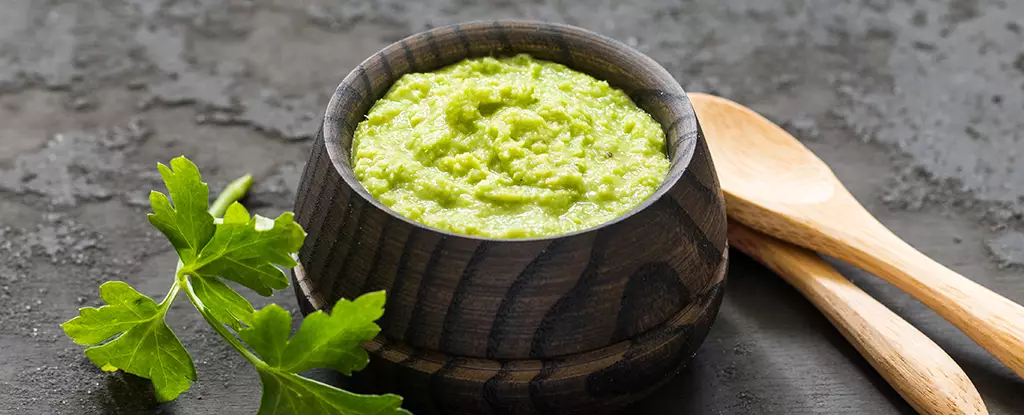A recent study has shed light on the potential cognitive benefits of consuming wasabi for older adults. The study focused on a bioactive compound found in wasabi called 6 methylsulfinyl hexyl isothiocyanate (6-MSITC), which has been previously associated with antioxidant and anti-inflammatory effects. These effects are thought to slow down cell damage and provide protection. While limited research has shown the positive impact of 6-MSITC on cognition, this study aimed to investigate its effects specifically on older adults who are at a higher risk of cognitive decline and related issues such as dementia.
The study involved 72 adults aged over 60 and spanned across a period of 12 weeks. The participants were randomly divided into two groups – one group was given a daily dose of a wasabi tablet containing 6-MSITC, while the other group received a placebo tablet. At the end of the study, the group that had consumed the wasabi tablets demonstrated significantly improved performance in episodic memory (recalling past events) and working memory (holding information temporarily) based on various cognitive tests. However, no significant differences were observed in other areas of cognitive function, such as reasoning, attention, and processing speed.
The researchers propose that the positive effects of the 6-MSITC-containing wasabi may be specifically targeted at the hippocampus region of the brain, which plays a crucial role in memory function. The study suggests that regular consumption of 6-MSITC may enhance working and episodic memory in healthy older adults. However, further investigation is required to understand the exact biological and molecular mechanisms underlying this phenomenon. The study did not measure antioxidant or anti-inflammatory biomarkers, which leaves room for speculation about the precise mechanisms by which wasabi exerts its positive effects on memory.
Older adults with lower cognitive performance often face difficulties in various daily activities such as shopping, banking, and cooking. The findings of this study offer hope for these individuals by suggesting that incorporating 6-MSITC-containing wasabi into their diet may potentially improve their memory function. Not only is wasabi a flavorful addition to meals, but it also provides a natural and accessible way of supporting brain health in older age.
The study highlights the potential cognitive benefits of consuming 6-MSITC-containing wasabi for older adults. The positive effects observed on episodic and working memory offer promising insights into maintaining cognitive function as people age. However, further research is needed to deepen our understanding of the underlying mechanisms and to explore the broader impact of wasabi consumption on overall brain health. Nonetheless, this study presents a compelling connection between 6-MSITC and improved memory function in older adults and encourages further exploration of the potential benefits of wasabi on cognitive health.


Leave a Reply